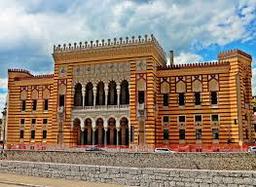6) From Balkan Crises to World War, 1912-14
The Balkan troubles
The Balkan Wars, 1912-13
A. The First Balkan War (1912)
- In 1912 the Balkan League was formed by Serbia with Bulgaria, Greece and Montenegro for to drive Turkey out of the Balkans (by freeing Macedonia from its rule)
- Austria-Hungary mobilised its army but the public opinion was against to join the war
- The Balkan League defeated the Turkish forces on only a local war
- An international conference in London followed the war
> Compromises were made to solve the situation
> An independent, non-slav Albania was created for the aim of Austria-Hungary which still was not satisfied for the situation in the Balkans
B. The Second Balkan War (1913)
- The controversies begun with the members of the Balkan League
< Serbia had occupied territory which the Bulgarians felt to be rightfully theirs > Bulgaria begun a war against Serbia and Greece
- Austria-Hungary wanted to join the war if supported by the Germans (While Serbia might well be supported by Russia) but the German government called for restrain
- By the Treaty of Bucharest (August 1913) Serbia made significant territorial gains
- Military victory for Serbia meant a diplomatic victory for Russia and diplomatic defeat for Austria-Hungary and Germany
- After the agreement Serbia occupied territory > An ultimatum to withdraw its troops was given to the Serbs by Austria > Serbia accepted the ultimatum
> Analyse the reasons to avoid a war between the great powers in 1912 or 1913.
- In 1912 the Balkan League was formed by Serbia with Bulgaria, Greece and Montenegro for to drive Turkey out of the Balkans (by freeing Macedonia from its rule)
- Austria-Hungary mobilised its army but the public opinion was against to join the war
- The Balkan League defeated the Turkish forces on only a local war
- An international conference in London followed the war
> Compromises were made to solve the situation
> An independent, non-slav Albania was created for the aim of Austria-Hungary which still was not satisfied for the situation in the Balkans
B. The Second Balkan War (1913)
- The controversies begun with the members of the Balkan League
< Serbia had occupied territory which the Bulgarians felt to be rightfully theirs > Bulgaria begun a war against Serbia and Greece
- Austria-Hungary wanted to join the war if supported by the Germans (While Serbia might well be supported by Russia) but the German government called for restrain
- By the Treaty of Bucharest (August 1913) Serbia made significant territorial gains
- Military victory for Serbia meant a diplomatic victory for Russia and diplomatic defeat for Austria-Hungary and Germany
- After the agreement Serbia occupied territory > An ultimatum to withdraw its troops was given to the Serbs by Austria > Serbia accepted the ultimatum
> Analyse the reasons to avoid a war between the great powers in 1912 or 1913.
The July Crisis, 1914
The Sarajevo assassination, 28 June 1914 (4 min)
A pair work
1)
A: Read the text titleted 'Improved Relations' on page 100. Give arguments for the title.
B: Read Colonel House's report to the US President Woodrow Wilson. How did House analyse the European situation in the Spring 1914?
> A + B discuss together: What could be reasons for the contradictions between these texts?
2) Analyse the possible motives for the assassination of Archduke Franz Ferdinand on 28 June.
3) The pairs choose one of the following:
PAIR A: Austria-Hungary
PAIR B: Germany
PAIR C: Russia
PAIR D: England and France
> Study the policies of the chosen Great Power(s) during the July Crisis in 1914.
> Be ready to justify the decisions made by the leaders of the country (countries) of your own by giving supporting arguments for their policy.
A pair work
1)
A: Read the text titleted 'Improved Relations' on page 100. Give arguments for the title.
B: Read Colonel House's report to the US President Woodrow Wilson. How did House analyse the European situation in the Spring 1914?
> A + B discuss together: What could be reasons for the contradictions between these texts?
2) Analyse the possible motives for the assassination of Archduke Franz Ferdinand on 28 June.
3) The pairs choose one of the following:
PAIR A: Austria-Hungary
PAIR B: Germany
PAIR C: Russia
PAIR D: England and France
> Study the policies of the chosen Great Power(s) during the July Crisis in 1914.
> Be ready to justify the decisions made by the leaders of the country (countries) of your own by giving supporting arguments for their policy.

